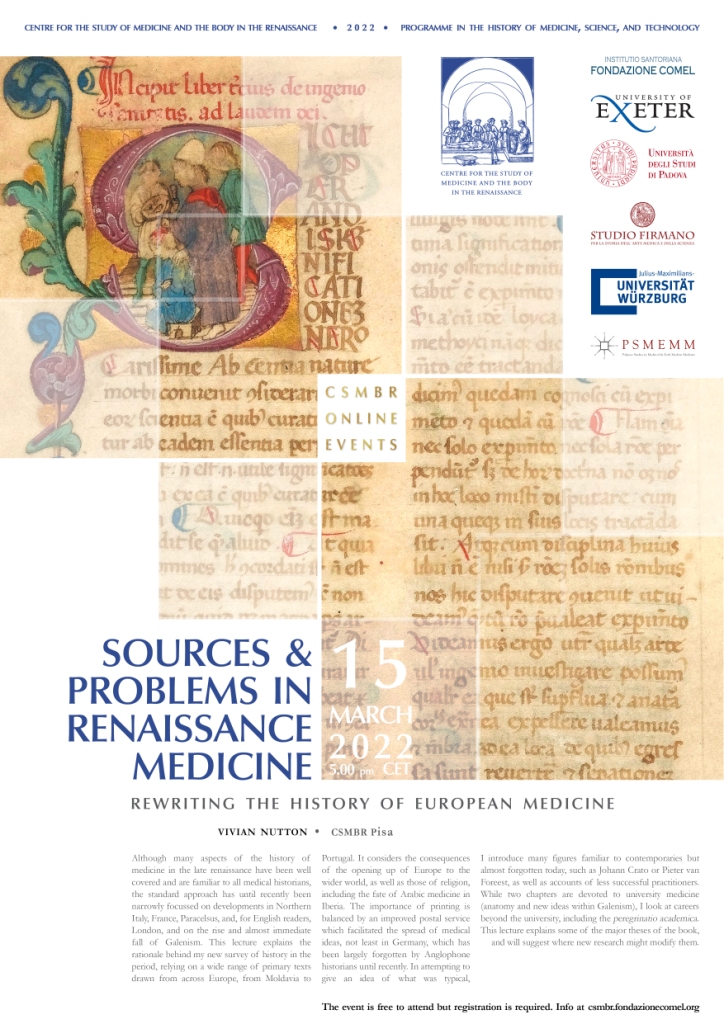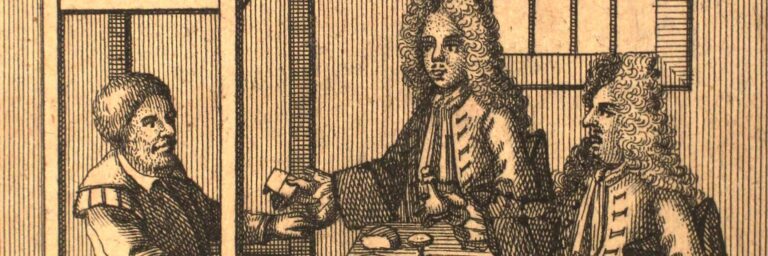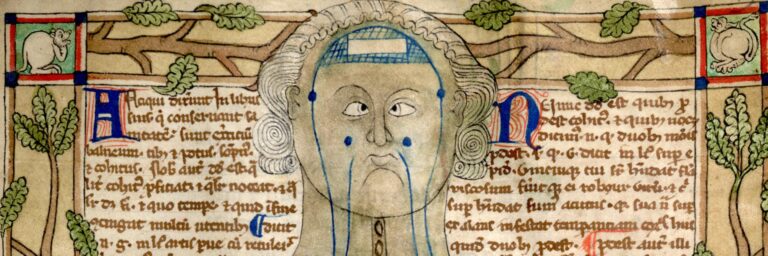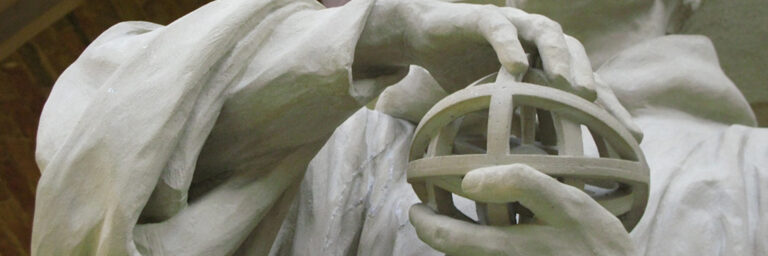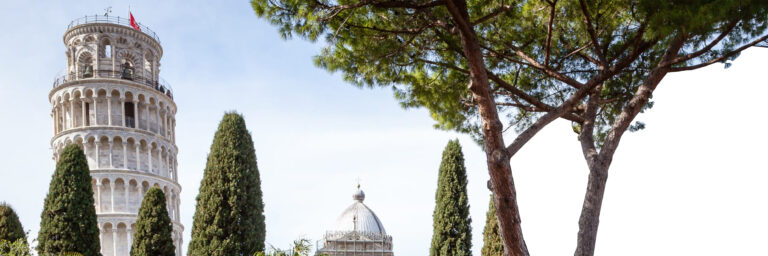Sources and Problems in Renaissance Medicine
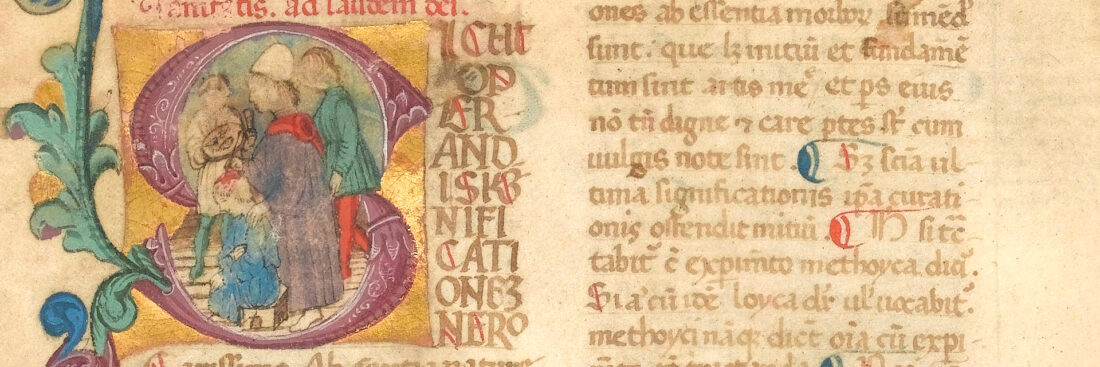
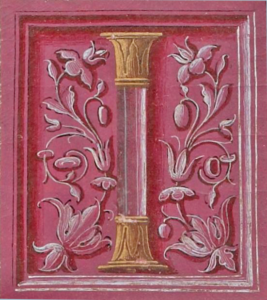
Sources and Problems in Renaissance Medicine
Rewriting the History of Western Medicine
Vivian Nutton
15 March 2022 – 5 PM (CET)
About the Speaker ...
Vivian Nutton is an Emeritus Professor at the Centre for the History of Medicine, University College London, and current President of the Centre for the Study of Medicine and the Body in the Renaissance (CSMBR).
He acquired a BA in Classics at Cambridge in 1965 and subsequently taught there as a Fellow of Selwyn College (1967–77). He received his PhD in 1970. Since 1977 he has worked at the Wellcome Trust Centre for the History of Medicine as a Lecturer, and since 1993 as Professor. He is a member of several international learned societies and a Fellow of the British Academy. Since 2015 he has worked at I.M. Sechenov First Moscow State Medical University (1st MSMU). Prof. Nutton’s main field of research is the Greek physician Galen. Beyond that, his work comprises the whole of the ancient history of medicine and its reception history, in particular during the Renaissance and in the Muslim world.



